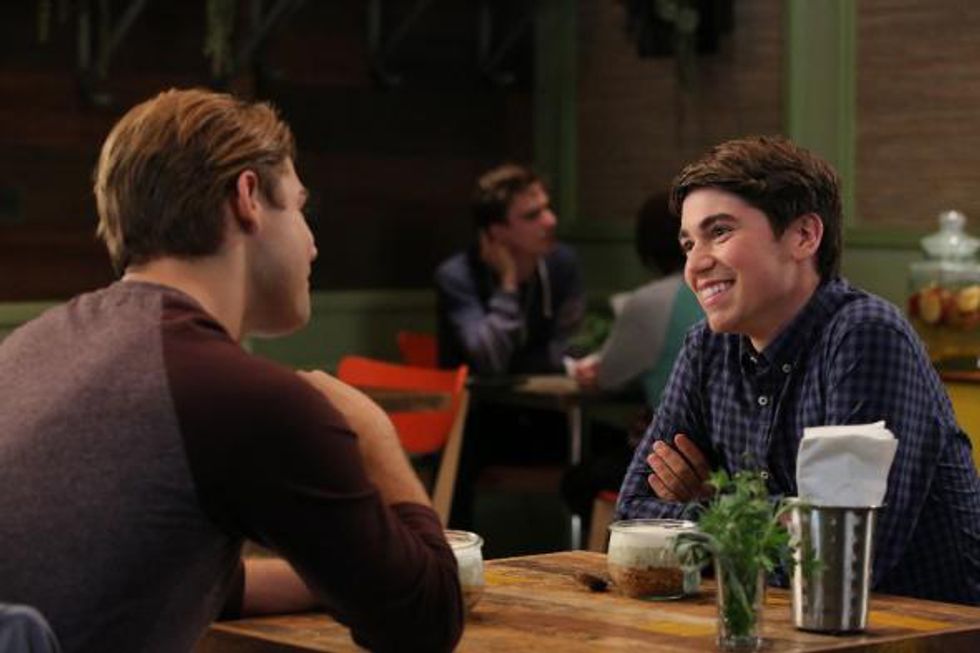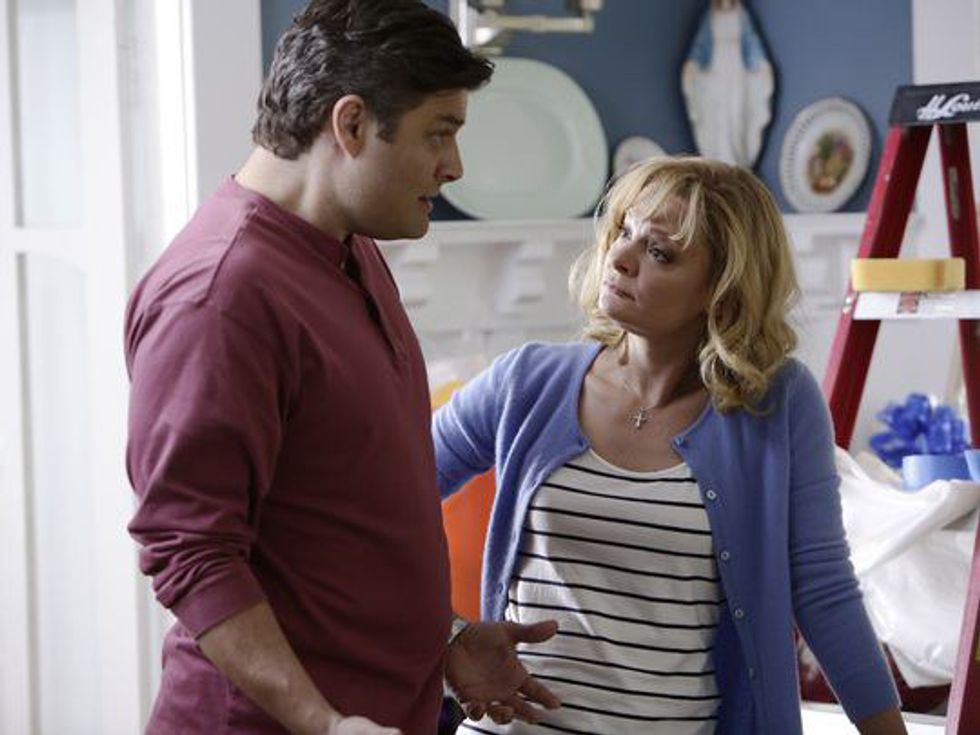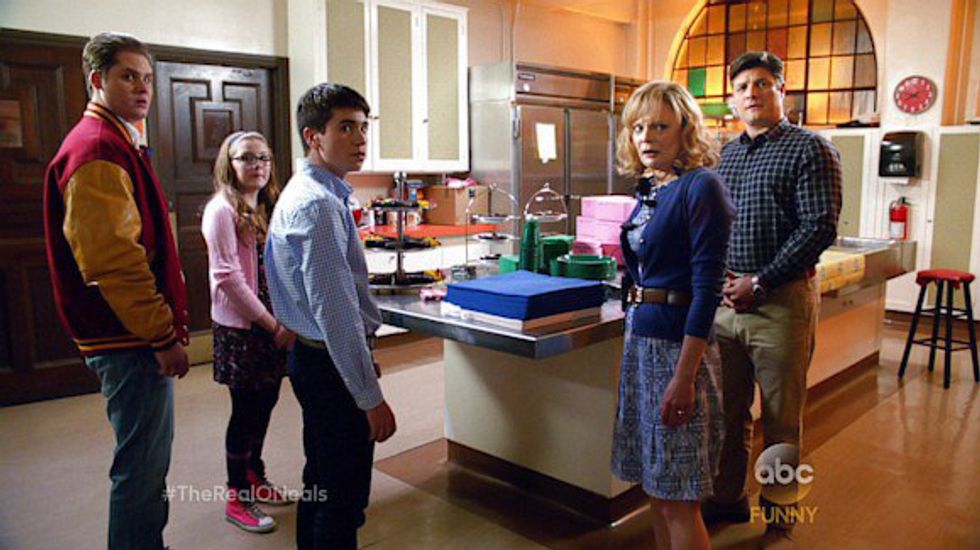It would be marvelous if the world could be like most TV shows. It would be great if families could have moments of honesty with each other and seemingly resolve a major relationship conflict just through talking. It would be really nice if any person, regardless of gender, age, sexual orientation, race or religion could walk down the street without fear of being targeted by someone because of these traits. It would be a wonderful world if an LGBT teenager's life were made easier by coming out to his or her parents, instead of being made more complicated, as is often the case.
Television comedies usually fall into two categories. The first is with traditional, single-race family units that make jokes in a non-provocative way and rarely touch on controversial topics. The second usually involves several different controversial issues, but is not necessarily a good representation of real people's actual lives.
This second type of comedy show attempts to show a society in which voices are heard and people can coexist in the workplace or even the home, but the main problem is that we aren't there yet. Does anyone remember on Glee how Kurt Hummel's dad dealt with his son's coming out in roughly 3.6 seconds? It's nice for a show with such a young audience to show examples of tolerance, but how do people with a different story feel? How would a homeless trans-woman of color react to this story-line?
The problem is that we're not there yet.
This is why I love the new ABC series, The Real O'Neals. The format of the show looks pretty basic and "white-privelegy" at first glance, but for the following reasons, among others, I believe that this show is a different kind of comedy that television desperately needs.
1. Kenny's sexuality is more than a list of sexless stereotypes.
I don't know about you, but I have seen a lot of "gay" characters on comedy shows that don't seem to be very gay. The typical life of this kind of character usually includes a certain style of dress, talking with his hands and some form of Histrionic Personality Disorder.
While for a while it was necessary to show these types of characters for the sake of exposing the public to any aspect of the gay community, these characters now do more harm than good. They cut out the only real qualifier of a gay man: his homosexuality.
These characters on popular TV shows are seen working, interacting with friends and all the other things that Malibu Barbie does, but their romantic lives are often left out of the picture.
In the case of this show, however, Kenny's love life is laid out on the line. He goes on dates, develops a crush, deals with his first rejection, and does all the things that teenagers go through. If society wants to be more open-minded and accepting of the LGBT community, they need to see the fact that the members of that community are nothing more than regular people with a lot of the same problems that everyone else faces.
2. This show depicts the struggle on both sides of the coming-out process.
When dealing with a gay character's coming-out in a typical sitcom, the parents usually have a struggle that lasts one or two episodes, sometimes less. For so many LGBT youths, this is far from the truth. The coming-out process is difficult for many families and can take a long time.
Kenny's coming-out on this show is still a bit hurried when compared to a real-life scenario, but what I appreciate about this show is that it shows the struggle and the difficulty that families face as well. In this series, we see his siblings ask uncomfortable questions, his father try to relate to him, and his mother dealing with a crisis between her faith and the love she has for her son.
Eileen's viewpoint is one that is not portrayed with enough sympathy. It is important that we support those in the LGBT community during their coming-out, but it is also crucial that people be sensitive and empathetic to those on the other side of a coming-out. It can be an enormous challenge for one to reevaluate his or her faith, and I appreciate getting to see Eileen O'Neal's journey.
3. The show draws attention to emotional dishonesty within Christianity.
I have seen quite a few people disgruntled with the show's handling of the topic of religion. They claim that the characters' lives are based too much in stereotypes about Irish-Catholic families.
I am not Catholic, so I can't fully understand this viewpoint, but I am a Christian so I understand the desperate need for increased levels of emotional honesty within the church.
Conversations between parishioners and other church-goers are far too often loaded with subtext and passive-aggression. People feel that they must always be experiencing "the Joy of the Lord," or else they are not "good Christians." Just like Pat points out in the pilot, it is time that Christian families started talking about their issues and being emotionally honest with one another.
It is this type of emotional honesty that makes this show refreshing. As time goes by, Millennials have increasing levels of disdain for organized religion. I believe that part of this is due to many people within the church paying far too much attention to appearances.
"The Real O'Neals" is not exactly like a real family. It is a bit stereotypical and is by no means a perfect show, but I have found something in this show that I have been missing in television. I have found a voice telling people that it is OK not to be perfect; it is OK not to have it all together. We can appreciate ourselves and our loved ones, flaws and all, and hopefully all become a little more "real" in the process.


























